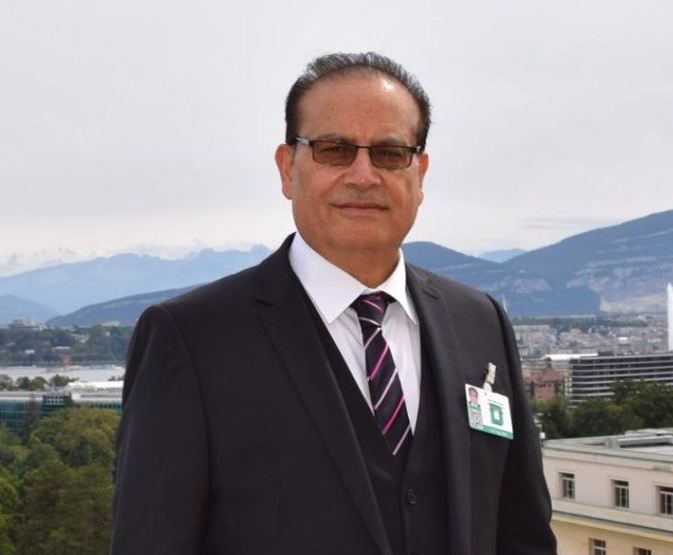By: Qamar Bashir
Macomb, Detroit, Michigan
Recent developments have posed challenges to the U.S. deportation policy under President Trump’s administration. On January 24, 2025, Mexico denied permission for a U.S. military aircraft, specifically a C-17 transport plane, carrying approximately 80 deported migrants to land in the country, citing concerns over sovereignty and the treatment of deportees. Similarly, Colombia has rejected U.S. military flights carrying deported Colombian migrants, with President Gustavo Petro emphasizing the need for dignified and respectful treatment of migrants while rejecting their criminalization.
Unauthorized immigration remains a complex and multifaceted issue in the United States. As of 2022, the United States is home to approximately 12 million unauthorized immigrants. Among them, Mexico has the largest share, with an estimated 4.81 million unauthorized immigrants. Guatemala follows with 750,000, while El Salvador and Honduras account for 710,000 and 560,000, respectively. Beyond Central America, the Philippines contributes 350,000 unauthorized immigrants, Venezuela 320,000, Colombia 240,000, and Brazil 230,000. Additionally, India and China have significant unauthorized populations, with 220,000 and 210,000 individuals, respectively. Many individuals from these countries initially arrive through legal channels, such as student or tourist visas, and subsequently overstay their permitted duration, thereby becoming unauthorized residents.
The Trump administration described illegal immigration as “invasion,” highlighting that over 13,000 individuals with murder convictions, nearly 16,000 rapists and sexual predators, and more than 425,000 individuals with criminal records have entered the U.S. illegally. Noting that drug trafficking and human trafficking affect communities nationwide, describing the situation at the southern border as a “war zone,” requiring urgent intervention. Concerns were expressed over 70,000 Afghan refugees who were brought to the U.S. without proper vetting.
According to the data over 13,000 individuals with murder convictions and nearly 16,000 rapists and sexual predators have entered the U.S. illegally. Additionally, more than 425,000 individuals with criminal records are currently residing in the country without legal authorization. Reports indicate that over 300,000 migrant children are currently unaccounted for, raising fears of trafficking and abuse.
Additionally, illegal migrants were involved in drug cartels and human trafficking, including fentanyl, illegal firearms, and large sums of cash that continue to flow across the southern border due to inadequate enforcement measures.
The Trump administration presented a robust strategy to counter illegal immigration, focusing on stronger enforcement, judicial reforms, and national security enhancements. The plan prioritizes securing the border, deporting criminal migrants, dismantling human trafficking networks, and improving transparency between federal and state agencies.
The administration is also committed to addressing the growing backlog of cases to clear the pending immigration cases, from 1.4 million to 3.5 million between 2021 and 2024, with over 340,000 asylum claims, and to investigating the status of missing migrant children and strengthening enforcement against traffickers who prey on vulnerable individuals.
Since President Trump’s inauguration, his administration has aggressively pursued its illegal immigration deportation policy. Within the first few days, U.S. Immigration and Customs Enforcement (ICE) conducted raids in multiple cities, resulting in the arrest of 538 undocumented immigrants, including individuals identified as gang members and those convicted of sex crimes against minors. Additionally, the administration’s plan to deport migrants with temporary residence permits granted during the previous administration has sparked legal and ethical debates.
However, refusals of Mexico and Colombia to reject deportation flights have given a first setback to the speed and efficiency of deportation efforts. This situation poses a challenge to Trump’s policy, forcing the U.S. to engage in diplomatic negotiations, establish clear deportation mechanisms and methodologies, and adhere to both local and international laws and protocols before implementing a unilateral deportation strategy.
The Trump administration’s policy of deporting illegal immigrants is based on both common sense and legality. While there may be justifications and counterarguments to this approach, on the touchstone of legal principles and rational policymaking, the deportation of individuals who have entered the country through illegal or shortcut means must be handled strictly in accordance with the law.
Immigration laws exist to ensure national security, economic stability, and public order, and failing to enforce them undermines the legitimacy of the legal immigration system, encourages further illegal migration, and places undue pressure on public resources.
The responsibility lies with the countries of origin to take back their citizens with dignity and respect, establish rehabilitation centers, and provide them with the necessary support to reintegrate into their societies or apply legally for migration in the future. Ironically, many of these nations refuse to accept their own deported citizens while expecting the United States to grant them legal residency or citizenship, an approach that lacks both logical and legal justification.
While the USA has the full legal right and authority to deport these individuals, it may consider demonstrating magnanimity and compassion by ensuring that illegal immigrants are treated with dignity and respect.
Additionally, it should exercise extreme restraint in addressing this critical issue with wisdom and diplomacy, seeking appropriate diplomatic solutions rather than resorting to coercion, pressure tactics, or the use of military force to enforce its immigration policies.
A measured and strategic approach would uphold international norms, strengthen bilateral relations, and promote cooperation, ensuring that the issue is resolved in a manner that aligns with both legal principles and humanitarian values.
Moreover, the USA, as a champion and advocate of human rights and decency, bears an additional moral responsibility beyond common sense and legality toward illegal immigrants who have arrived in search of better opportunities for themselves and their families after enduring immense hardships and suffering.
Furthermore, those who are genuinely hardworking, law-abiding, and contributing to the U.S. economy and growth should be given a pathway to remain in the country, provided they meet the bare minimum legal requirements. Such an approach would not only uphold the nation’s humanitarian values but also recognize the contributions of immigrants, who play a vital role in various sectors of the economy.
By: Qamar Bashir
Press Secretary to the President (Rtd)
Former Press Minister at Embassy of Pakistan to France
Former MD, SRBC












